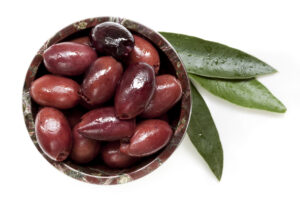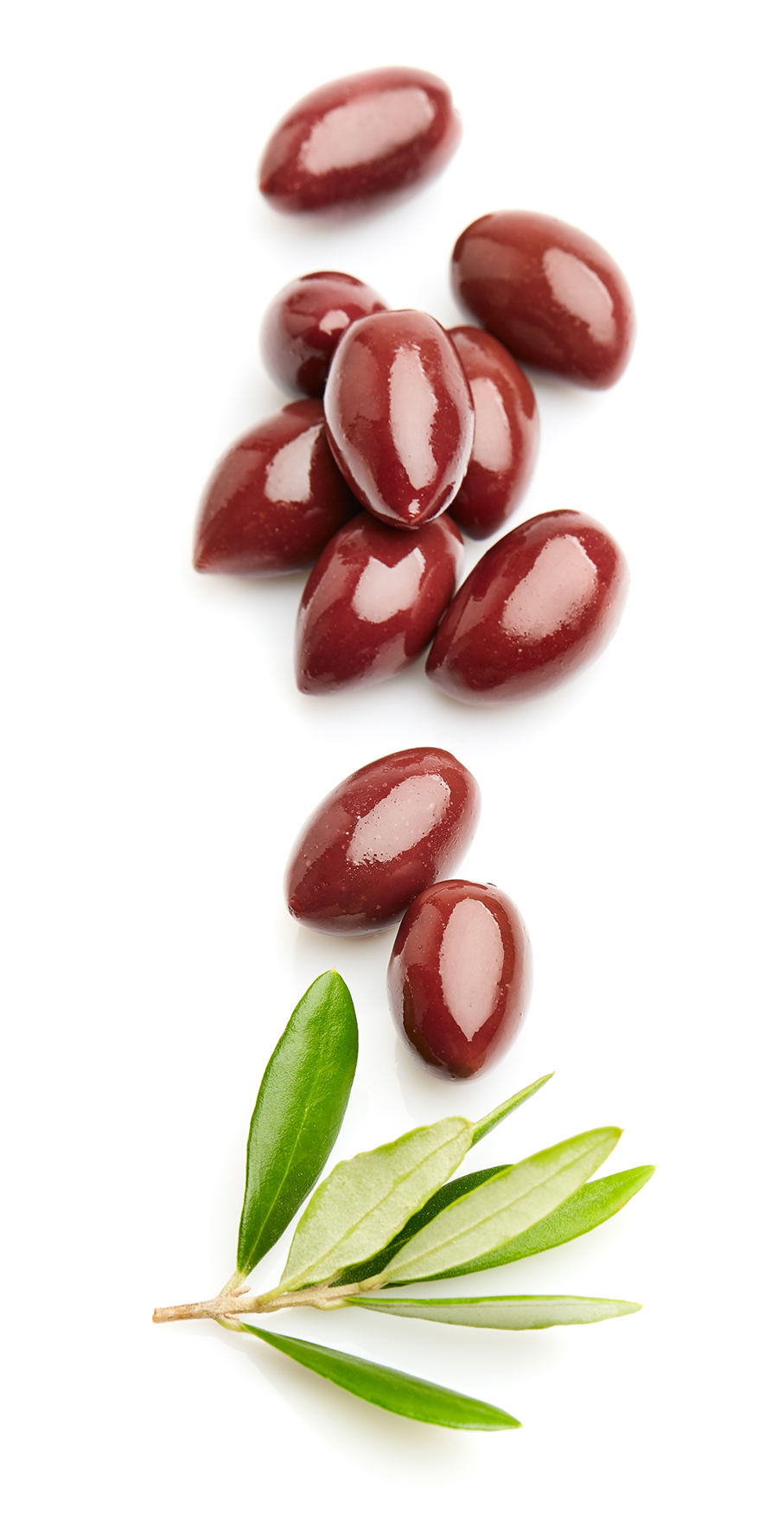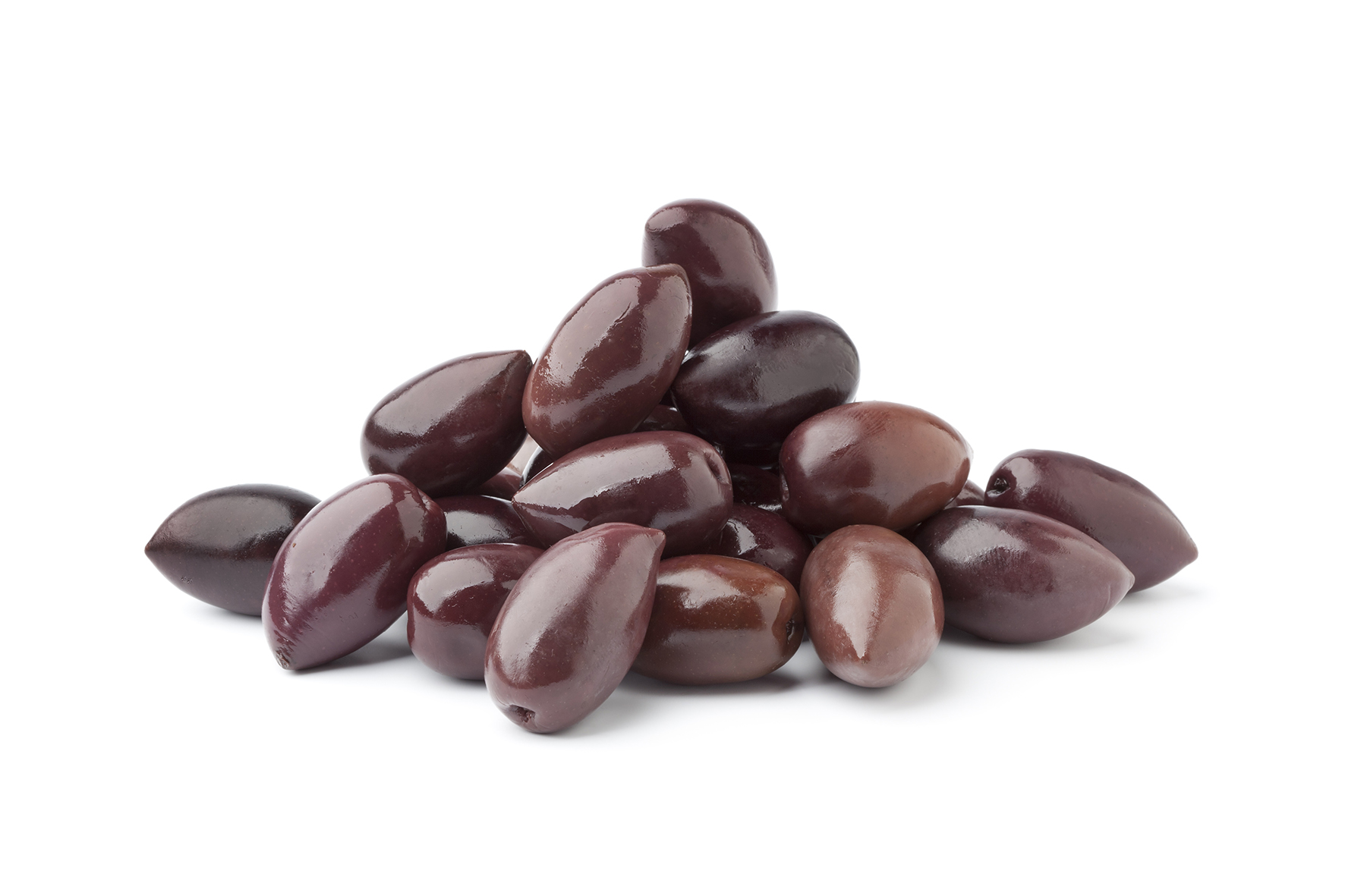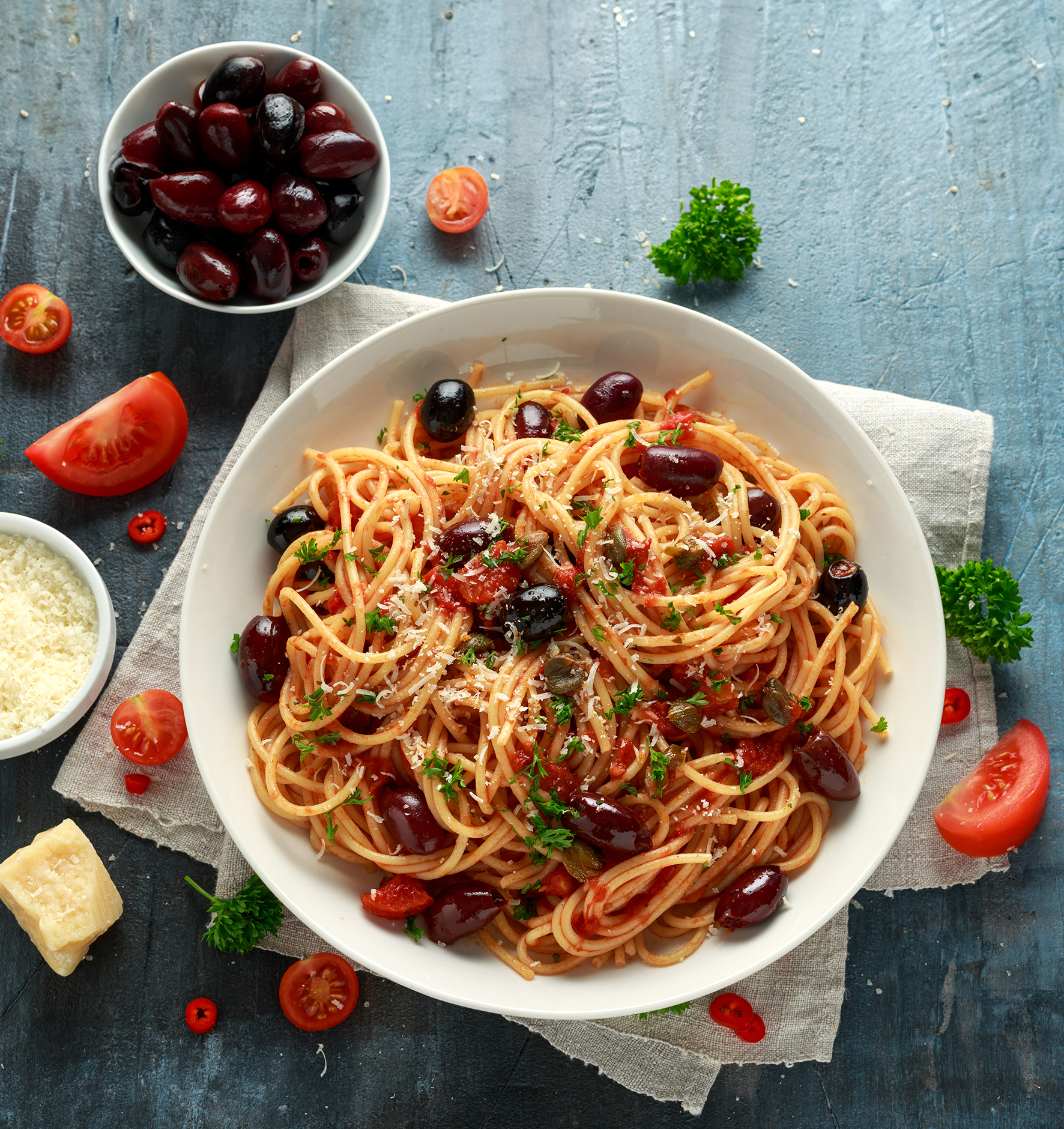Kalamata olives are a unique and distinctive variant of olives. Originally from Greece, they are appreciated all over the world for their characteristic taste and culinary versatility.
They are named after the Kalamata region in the southern Peloponnese, which has climatic and soil conditions that favour their cultivation. In addition, they are harvested by hand to preserve their quality and flavour.
What are kalamata olives?
Kalamata olives are olives characterised by their dark purple, almost black colour and elongated, pointed shape. Thanks to their intense, sweet flavour and their fleshiness, they are highly appreciated in Mediterranean cuisine. They can be eaten both in their natural form and after having undergone fermentation and curing processes.

Types of kalamata
There are different types of Kalamata olives which vary according to their state of ripeness at the time of harvesting and the curing process they undergo. The most common are:
- Black Kalamata olives. These are the best known and most popular. They are harvested when they have reached full maturity, which gives them their characteristic dark purple to black colour. They are fleshy, juicy and have a milder flavour compared to green olives.
- Green Kalamata olives. This type is harvested before they reach full ripeness. These green olives are firmer and tend to have a fresher, more bitter taste. As they ripen on the tree, their colour can vary from green to purple.

- Whole Kalamata olives. These are olives that are presented intact, either green or black. They are usually used in salads, appetizers and as garnish.
- Pitted olives. This type of olives are pitted to facilitate their consumption and for their use in recipes where the absence of stone is preferred.

What nutrients do they provide?
These olives provide a wide range of nutrients that are beneficial to health.
Healthy fats
Kalamata olives are an excellent source of monounsaturated fats, especially oleic acid. These fats provide a number of cardiovascular health benefits, helping to reduce LDL (“bad”) cholesterol levels and increase HDL (“good”) cholesterol levels.
Vitamins
Kalamata olives contain small amounts of vitamins, vitamin E being one of the most prominent. Vitamin E acts as an antioxidant, helping to protect the body’s cells against oxidative damage, improves skin health and supports brain health among other benefits.
Minerals
Olives are a source of minerals such as iron, calcium, magnesium and potassium. These minerals play important roles in bone health, muscle function, red blood cell formation and blood pressure regulation.
Fibre
Olives contain fibre which is beneficial for digestive health. It helps maintain bowel regularity and contributes to satiety.
Antioxidants and polyphenols
Olives contain antioxidants and polyphenols. These compounds help to combat oxidative stress in the human body and also have anti-inflammatory properties.

In which dishes can Kalamata olives be used?
Thanks to their versatility in the kitchen, Kalamata olives can add a distinctive Mediterranean touch to a variety of dishes. Here are some suggestions on how to incorporate these delicious olives into your meals:
- Salads. Kalamata olives add depth of flavour to green, tomato or pasta salads. They combine particularly well with ingredients such as feta cheese, tuna, tomatoes and basil, among others.
- Pasta dishes. These chopped olives can be added to your favourite pasta dishes for a distinctive, juicy touch. They go well with pasta salads or pasta with tomato, basil and cheese.
- Pizzas. On both homemade and pizzeria pizzas, Kalamata olives are an excellent addition. They can be sprinkled whole or sliced on pizza before baking.
- Seafood dishes. These olives can be added to fish or seafood dishes to enhance the flavours.
- Appetizers. Whole or pitted olives are always an ideal choice as part of a feta cheese and charcuterie board, for example, or as a Mediterranean appetizer.
- Stews and casseroles. These olives add depth and flavour to stews and casseroles, especially those with a tomato or olive oil base. They can be combined with herbs such as rosemary or thyme.
- Sauces. These olives can be used to prepare sauces with garlic, capers, olive oil and herbs. These mixtures are ideal for spreading on bread or as a dressing for fish or meat dishes.
Kalamata premium olives
ILIADA is a premium brand of Greek origin positioned in the olive oil and Kalamata olives sector. Over the years it has acquired great recognition in the market, even receiving awards that certify its high quality. This positions them as a benchmark in the olive oil and Kalamata olives sector.
ILIADA Kalamata olives are 100% natural thanks to the fact that only water, vinegar, salt and oil are used in the process to preserve them. All this to achieve an authentic, rich, fruity flavour full of aromas. Discover the real Kalamata olives with denomination of origin.
They come directly from the Kalamata region of Greece. To protect their sensitive flesh, they are left to ripen naturally in the sun and are harvested and picked by hand. They are unique in taste and appearance, oval in shape, dark purple in colour and unique in size and texture.


